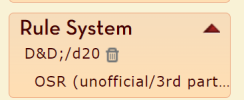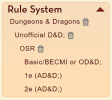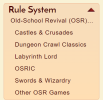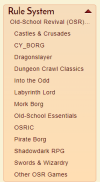Urdlen's best boy
Deep Crawler
- Joined
- May 23, 2023
- Messages
- 882
- Reaction score
- 1,867
That's been on my mind lately. It's fun and sometimes interesting but generally end result is basically gamer horoscopeI honestly think all attempts to categorize gamers eventually fall into these logic traps, and it's just best to not do it really.






 .
.
 !
! !
! ?
?






